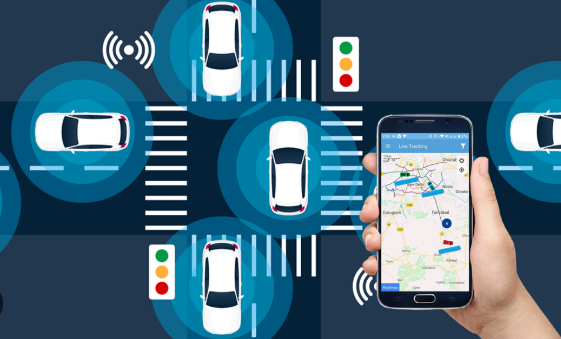5 Benefits of Real-Time Vehicle Tracking for Modern Businesses

In today’s dynamic business environment, technology plays a crucial role in streamlining operations. For businesses that manage fleets or rely on vehicle logistics, real-time vehicle tracking has become an indispensable tool. It boosts efficiency, enhances safety, and improves customer satisfaction, providing a competitive edge in a fast-paced world.
Here are the five major benefits of real-time vehicle tracking for modern businesses and why it’s a must-have for companies striving for operational excellence.
1. Improved Operational Efficiency
Real-time vehicle tracking allows businesses to manage their fleets more effectively, eliminating inefficiencies and streamlining day-to-day operations.
Key Features That Boost Efficiency
- Route Optimization: GPS tracking systems analyze traffic patterns and suggest the quickest routes, saving time and reducing fuel consumption.
- Minimized Downtime: Real-time updates help fleets avoid traffic jams, accidents, or road closures, ensuring smoother operations.
- Faster Dispatching: Fleet managers can assign jobs to the nearest available vehicle, cutting down on idle time and delays.
Example in Action
Imagine a courier service with dozens of daily deliveries. By tracking their vehicles in real time, they can proactively reroute drivers to avoid congestion, ensuring packages are delivered on time. This not only saves fuel but also enhances customer satisfaction.
2. Enhanced Fleet and Driver Safety
Real-time vehicle tracking is a powerful tool for ensuring the safety of drivers and vehicles. By monitoring activity on the road, businesses can mitigate risks and respond swiftly to emergencies.
Safety Benefits of Vehicle Tracking
- Monitoring Driver Behavior: Systems track behaviors like speeding, harsh braking, and rapid acceleration, allowing managers to address safety concerns.
- Emergency Assistance: In the event of a breakdown or accident, live location tracking enables quicker response times.
- Geofencing Technology: Businesses can set virtual boundaries, receiving alerts if vehicles leave assigned routes or enter restricted areas.
Real-World Impact
A transportation company that implemented driver behavior monitoring saw a 40% reduction in speeding incidents and improved vehicle longevity, reducing maintenance costs over time.
3. Cost Savings and Fuel Efficiency
One of the standout advantages of vehicle tracking is its potential to cut operational costs. Fuel and maintenance are two of the largest expenses for fleet-based businesses, and tracking systems help reduce both.
How Real-Time Tracking Saves Money
- Fuel Optimization: Real-time systems eliminate unnecessary idling and reduce inefficient routes, helping save on fuel costs.
- Maintenance Alerts: Tracking systems monitor vehicle performance and provide reminders for routine maintenance, avoiding expensive breakdowns.
- Insurance Discounts: Many insurance providers offer lower premiums to businesses that use vehicle tracking systems due to reduced risks.
Example
A delivery company using real-time tracking reported a 25% reduction in fuel costs within six months. The system flagged idling as a major contributor to waste, allowing managers to implement better practices.
4. Improved Customer Satisfaction
In a world where customers demand quick, reliable, and transparent services, real-time vehicle tracking gives businesses a competitive edge.
Customer-Centric Advantages
- Precise Delivery Timelines: Businesses can provide accurate ETAs, helping customers plan around deliveries.
- Live Tracking for Customers: Customers can monitor their shipments in real time, increasing transparency and reducing inquiries.
- Fast Response to Delays: Businesses can proactively inform customers of delays and reroute vehicles to minimize disruptions.
Why It Matters
For e-commerce companies, customer trust is essential. Offering real-time tracking and consistent updates not only builds loyalty but also fosters positive reviews and repeat business.
5. Data-Driven Decision Making
Real-time vehicle tracking generates valuable data that businesses can use to improve their fleet management and make informed decisions.
Data Insights from Tracking Systems
- Driver Performance Metrics: Detailed reports help managers identify high-performing drivers and address inefficiencies.
- Fleet Utilization: Businesses can analyze trends to optimize the size and use of their fleets.
- Forecasting Needs: Data on delivery times and routes can inform future business expansion or resource allocation.
Strategic Advantage
A logistics company used tracking data to identify underperforming vehicles, ultimately reducing fleet size by 15% while maintaining the same service levels. This helped save money without sacrificing efficiency.
For more information, click here
Conclusion
Real-time vehicle tracking is no longer a luxury—it’s a necessity for modern businesses. From boosting operational efficiency and improving safety to cutting costs and enhancing customer satisfaction, this technology transforms how fleets are managed. Additionally, it provides businesses with actionable insights that pave the way for data-driven growth.
For companies striving to stay competitive in an increasingly demanding market, adopting real-time vehicle tracking can deliver tangible results, improve their bottom line, and set them apart as industry leaders.
FAQs
1. What is real-time vehicle tracking?
Real-time vehicle tracking is a system that uses GPS and other technologies to monitor the location, speed, and performance of vehicles in a fleet.
2. Can vehicle tracking help reduce fuel costs?
Yes, by optimizing routes and reducing idling time, businesses can significantly lower their fuel expenses.
3. Which industries benefit from vehicle tracking systems?
Industries like logistics, transportation, construction, food delivery, and field services benefit greatly from this technology.
4. Is real-time vehicle tracking expensive?
While there are upfront costs, the long-term savings in fuel, maintenance, and insurance premiums often outweigh the initial investment.
5. How does tracking improve customer satisfaction?
Real-time tracking provides customers with accurate ETAs and live updates, making services more transparent and reliable.
6. Are there legal considerations for using vehicle tracking?
Yes, businesses must comply with local privacy laws and clearly communicate tracking policies to employees to ensure ethical use.
Real-time vehicle tracking is the future of fleet management—embrace it and watch your business thrive!

